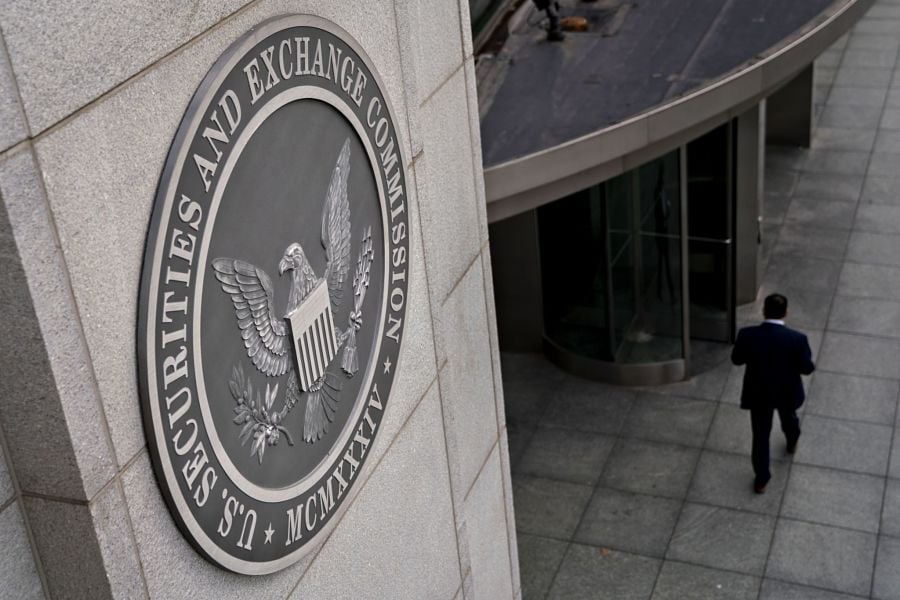

Providing access to the private capital market for ordinary investors while protecting them from the potential harm posed by risky unregistered securities will be a tough balancing act for the SEC, a discussion Wednesday at the regulator's Washington headquarters indicated.
During a meeting of the Securities and Exchange Commission’s Small Business Capital Formation Advisory Committee, several ideas were floated for easing the restrictions on who is defined as an accredited investor deemed sophisticated enough to purchase private placement offerings that fund startup companies, real estate developments, energy exploration and other initiatives.
Individual investors must have more than $1 million in assets not counting their home or earn more than $200,000 annually to be accredited. Under an SEC rule approved in 2020, certain securities licenses also qualify an investor as accredited.
Entrepreneurs, private equity and venture capital funds and many lawmakers have been pushing to ease the rules surrounding accredited status to increase the pool of investors who can provide funding for fledgling business. They argue it will create jobs. Skeptics say ordinary investors don’t understand the risk of potentially losing their entire stake if those ventures falter.
The advisory committee began work Wednesday on recommendations to the SEC on revising the accredited investor parameters. One idea was indexing to inflation the income and net worth thresholds that have been static since 1982.
“Forty years is a long time to not account for inflation,” said Erica Duignan, founder and general partner of Reign Ventures and chair of the committee.
But Bart Dillashaw, founder of Enterprise Legal Studio, said leaving the thresholds in place while inflation rises is a way to ensure that more investors become accredited.
“It’s a way to expand our pool,” Dillashaw said.
Another idea that was debated was for the SEC to establish a certification examination to become accredited. But just because someone passes the exam doesn't mean they grasp the risks of the private market, said George Cook, co-founder and CEO of Honeycomb Credit.
“I took an online quiz and now I’m accredited; that makes me nervous,” Cook said.
Registered investment advisors could be a portal to private placements, said Jasmin Sethi, founder and CEO of Sethi Clarity Advisers. It’s an idea that has been brought up on Capitol Hill, too.
“As an alternative to certification, what if you have an RIA, somebody who doesn’t have a conflict,” Sethi said. “They’re not actually making money off of your investment. Maybe you’re just paying them a flat fee, but they’re not gaining based on how much you put in. They’re just giving you an independent consultation on what you can afford and what kind of risk, diversification makes sense for your portfolio.”
Setting limits for what percentage of an investor’s assets can be allocated to private securities, increasing disclosures by issuers and enhancing investor education were other steps debated by the committee, which could make a formal recommendation to the SEC at its next meeting.
A separate panel — the SEC Investor Advisory Committee — tackled the accredited investor issue at its September meeting.
SEC Chair Gary Gensler pointed out that public offerings come with disclosure obligations that aren’t required of private offerings.
“Any discussion about the definition of an accredited investor raises the question about when it may be appropriate to have exceptions to this basic bargain at the heart of our capital markets,” Gensler told the committee. “In essence, when is it appropriate that investors get — or not get — that full, fair, and truthful disclosure that [President Franklin] Roosevelt worked with Congress to embed in the securities laws?”
The SEC has on its rulemaking agenda a proposal for private market reform that could include changing the accredited investor definition. It’s not clear when the SEC will act.
“We don’t comment or provide updates on the timing of regulatory actions,” an SEC spokesperson said in a statement. “As Chair Gensler has said, the commission considers rulemaking actions when the Commission and staff think they’re ready.”
Other SEC members took various approaches to accredited investor reform. Commissioner Hester Peirce suggested that the agency allow certification based on the attainment of investment education credentials bestowed by private organizations.
Commissioner Mark Uyeda said the accredited investor definition is “simultaneously underinclusive and overinclusive.” He encouraged the committee to “think about this as a blank canvas. Don’t be hemmed in to what we’ve done in the past.”
Commissioner Caroline Crenshaw said the agency should keep investor protection at the forefront of its deliberations on opening private markets.
“Increasing access to certain investors should not come at the expense of increasing the risk borne by everyday investors,” Crenshaw said.

By listening for what truly matters and where clients want to make a difference, advisors can avoid politics and help build more personal strategies.

JPMorgan and RBC have also welcomed ex-UBS advisors in Texas, while Steward Partners and SpirePoint make new additions in the Sun Belt.

Counsel representing Lisa Cook argued the president's pattern of publicly blasting the Fed calls the foundation for her firing into question.

The two firms violated the Advisers Act and Reg BI by making misleading statements and failing to disclose conflicts to retail and retirement plan investors, according to the regulator.

Elsewhere, two breakaway teams from Morgan Stanley and Merrill unite to form a $2 billion RIA, while a Texas-based independent merges with a Bay Area advisory practice.
Orion's Tom Wilson on delivering coordinated, high-touch service in a world where returns alone no longer set you apart.
Barely a decade old, registered index-linked annuities have quickly surged in popularity, thanks to their unique blend of protection and growth potential—an appealing option for investors looking to chart a steadier course through today's choppy market waters, says Myles Lambert, Brighthouse Financial.
